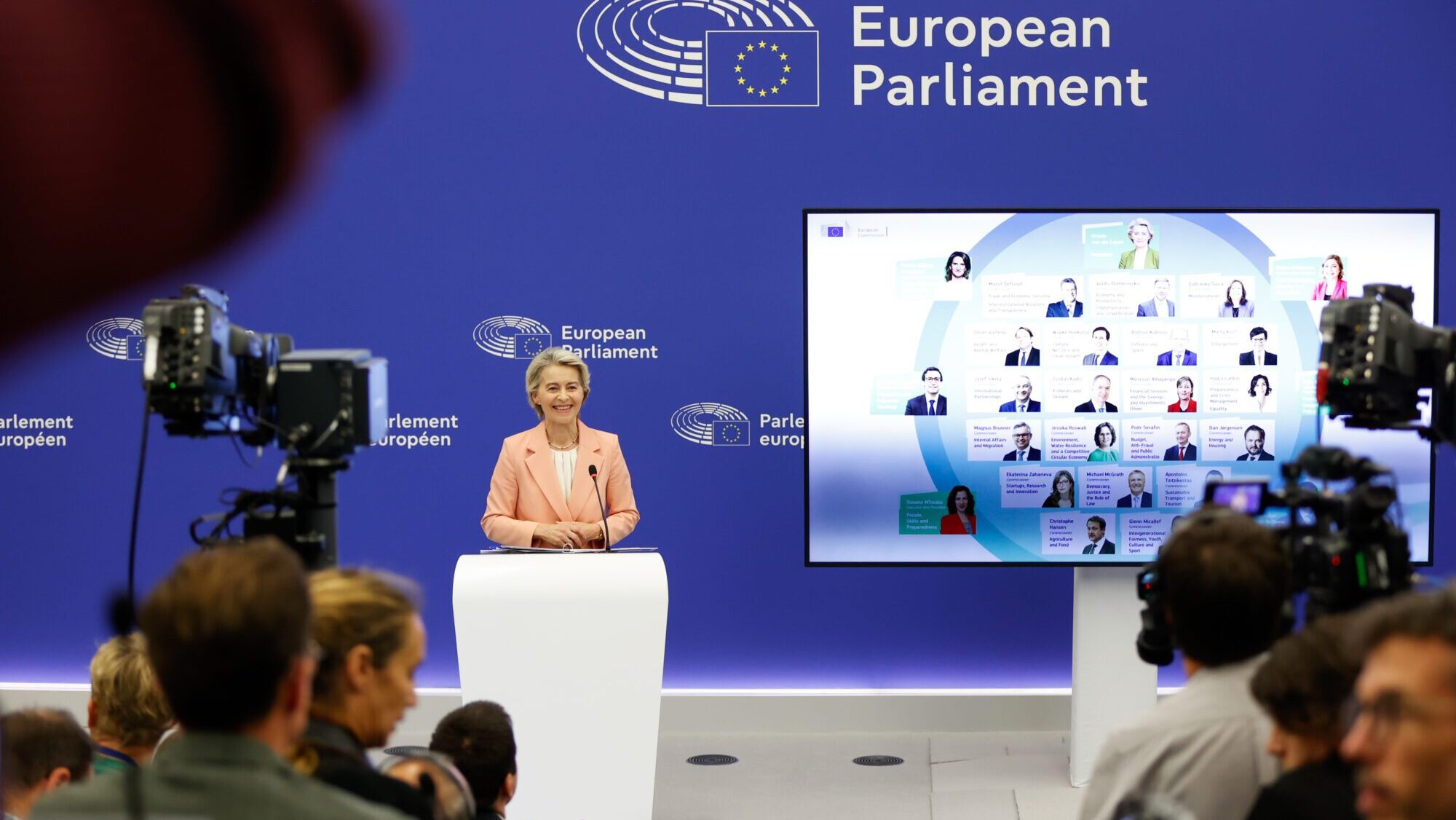
Commission President Ursula von der Leyen unveils the portfolio distribution in her new cabinet.
Photo: Mathieau Cugnot © European Union 2024 – Source: E
The European Parliament’s Conference of Presidents (leaders of political groups) have agreed on the final timetable for the incoming commissioner candidates’ confirmation hearings, scheduled to be held between November 4th and 12th.
The final schedule was published on Thursday, October 10th. The document confirms that the would-be Commission vice presidents will be questioned by MEPs last, on a single day on November 12th, while the rest of the College will be spread out for four days, between November 4th and 7th.
Furthermore, at the request of Belgium, there will be no hearing on Monday, November 11th, which is a public holiday in the country, marking the end of the First World War.
As previously reported by yours truly – here's the officially published version of the EU Commissioner hearings in the European Parliament for November. pic.twitter.com/Rn4aeP8zoN
— Jack Parrock (@jackeparrock) October 10, 2024
Each candidate will have to be approved by a vote among the members of the parliamentary committee (or committees) most relevant to their portfolios. Only after all of them have cleared this round can the College as a whole move in front of the entire plenary for final confirmation. If all goes smoothly, the plenary could vote on the second von der Leyen cabinet during the November 25-28th session and the new Commission would be sworn in in early December.
However, if a candidate is rejected by the committee phase, their member state will have up to two weeks to nominate a replacement. As multiple candidates are likely to be voted down this time around, the process will probably draw out much longer, meaning we might not have a new Commission until January 2025.
The candidates who will most likely “get the chop,” according to the Brussels insider Politico, include a few women who got onto the list because of von der Leyen’s unethical pressure on member states for more female nominees.
The Commission chief’s obsessive quest for gender balance resulted in names with questionable competence, including Slovenia’s Marta Kos—a former collaborator of the Yugoslav secret police who was later dismissed as ambassador after allegations of abuse, only to find work at one of the world’s biggest lobbying firms—and Bulgaria’s Ekaterina Zaharieva, who was caught up the center of a major passports-for-cash scandal back in 2018 as foreign minister, allegedly selling tens of thousands of EU visas to illegal migrants.
Another woman, Belgium’s Hadja Lahbib—who’s up for the ‘Humanitarian Aid, Crisis Management and Equality’ portfolio—is also expected to face harsh criticism from MEPs. Some things in her past don’t click well with her would-be responsibilities, including a Russia-funded trip to Crimea back when she was a journalist, and an obscure Iranian visa scandal a few years back that almost cost her job as Belgian foreign minister.
The five executive vice presidents (Finland’s Henna Virkkunen, France’s Stéphane Séjourné, Italy’s Raffaele Fitto, Romania’s Roxana Mînzatu, and Spain’s Teresa Ribera), as well as the EU’s next High Representative for Foreign Affairs, Estonia’s Kaja Kallas, will probably get deeper scrutiny as well, but it’s likely that the Parliament’s center-left ‘Ursula coalition’ will help them past the post to spare the Commission chief the humiliation and time of having to pick someone else.
The only one whose position might be risky is the conservative Raffaele Fitto, whose inclusion in the EU’s highest circle was met with loud protest from the Left simply for ideological reasons. But if von der Leyen wants to keep Italy (and PM Meloni) as her ally, she needs to persuade the leftist groups to accept a conservative into their ranks. We’ll see how that plays out one month from now.
